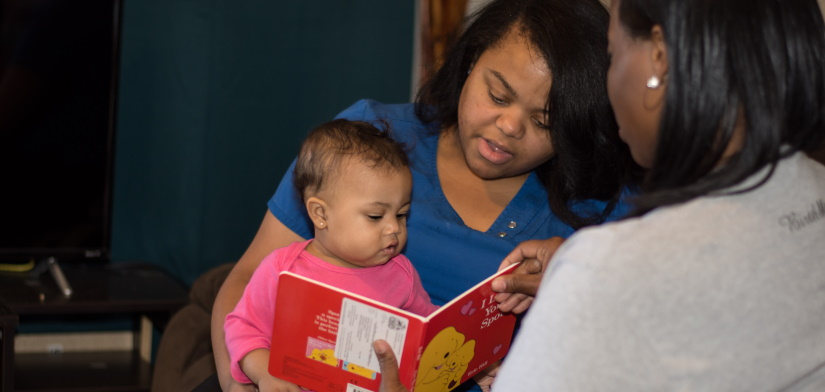April 27, 2020 | Erin Bluvas, bluvase@sc.edu
One year after its launch, the Arnold School's Center for Community Health Alignment has announced the recipients of its first competitive grants program as part of the Center’s Community Health Worker Institute. With funding from the BlueCross® BlueShield® Foundation of South Carolina and The Duke Endowment, the Return on Investment pilot opportunity will enable five organizations from across the state to collect and analyze data pertaining to the community health workers they employ. This data will include financial and other associated outcomes related to upstream prevention activities, social determinants of health, resource navigation, care coordination, health education, and patient engagement that can result from the utilization of the community health worker model.
“There is a lot of evidence from around the country that community health workers are not only effective at bridging gaps in care and improving the health of individuals and communities, but they also help health systems and other payers save money,” says Center director Julie Smithwick. "We are excited to be partnering with these five excellent CHW programs to determine potential cost savings of effective CHW programs and add to the evidence of CHW effectiveness in South Carolina.”
With seven community health workers serving Spartanburg, Cherokee and Union counties, AccessHealth Spartanburg is currently partnering with ReGenesis Healthcare and Union Medical Center to expand services more broadly in Union county with a focus on connecting low-income, uninsured adults to health care and social resources.
For the Return on Investment pilot project, AccessHealth community health workers will focus on managing uninsured patients with at least one chronic disease (e.g., hypertension, diabetes, heart disease, COPD, HIV/AIDS, renal disease, behavioral health), in an effort to reduce non-emergent ER visits and avoidable hospital admissions. Much of their work centers around addressing social determinants of health, such as transportation, food security, housing and living conditions, education, financial stability.
The second pilot project will be led by The Aiken Center, which aims to develop a peer-to-peer community health worker model to meet behavioral health and social needs (e.g., access to prevention/treatment, the need to build trust and respect with this population). With support from the South Carolina Department of Alcohol and Other Drug Abuse Services, The Aiken Center will increase their number of Peer Support Specialists, who are cross-trained as community health workers, from one to three.
For their project, The Aiken Center will focus on reaching males – particularly those with or at risk for developing chronic diseases – with at least one in-patient hospital stay or ER visit in which drug or alcohol abuse was the primary or secondary diagnosis. They will collect data related to inpatient admissions, ER visits, outpatient services, and Medicaid claims while focusing on social determinants of health (e.g., education, housing, employment, transportation, and health literacy).
Also located in Spartanburg, BirthMatters employs four community-based doulas who work to develop mutual, trusting and nurturing relationships with low-income women up to 24 years of age during pregnancy and the 12 months following birth. They plan to expand their team of doulas through additional funding from another source.
For their pilot project, BirthMatters will measure and track data related to reduction of repeat pregnancies and improved maternal/infant health disparities (e.g., healthy birth weight, reduction in NICU admissions, infant mortality, preterm birth). They will also focus on social determinants of health, such as access to health services and health equity based on racial disparities of infant/maternal mortality.
Since receiving funding from The Duke Endowment in 2015 to establish the community health worker model, Prisma Health - Upstate has grown its team to include five community health workers serving four counties. Over the past five years, they have developed a program evaluation method, which provides unique opportunities for analyzing comprehensive, historical data.
Their goal for the Return on Investment project is to focus on patient utilization data, such as ER visits, inpatient discharges, primary care and specialty care visits, total cases and total costs saved. Their social determinants of health targets include access to health care services, connection to community resources (i.e. food insecurity, housing availability, financial assistance, etc.), health literacy, social support and advocacy and access to education, employment and training opportunities.
The final project will be led by Tandem Health, a Sumter-based Federally Qualified Health Center employing three community health workers. Like several of the other grant recipients, they also have plant to expand their community health worker staff.
With their pilot program, Tandem Health will focus on the Medicare/Medicaid dual eligible population with uncontrolled hypertension and diabetes or multiple ER visits within the past 12 months. The community health workers will address health education, self-management skills, and linkages to community support services in an effort to increase control of chronic diseases and better use of available resources. They plan to address the following social determinants of health: low income, lack of health literacy, access to medication and food insecurity.
The BlueCross BlueShield of South Carolina Foundation is an independent licensee of the Blue Cross and Blue Shield Association.
Related:
